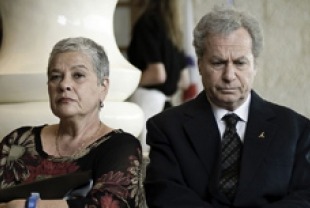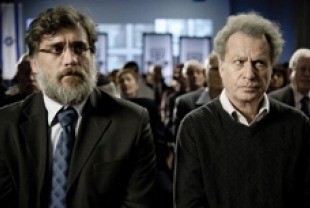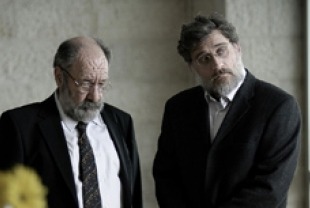"We live in a society where the emphasis upon winners and losers is dramatically revealed everywhere. Listen to the chants 'America Is No.1' after an American victory in an Olympic Games competition or read about the energy behind this phenomenon of 'status inflation,' " writes Joel Best. He notes that more awards are being given now than at any other time in history. Many schools give out multiple valedictorian awards; the military has upped the number of medals; and there are many awards for writers, filmmakers, and Hall-of-Fame players. The end result is what Best characterizes as "a self-congratulatory culture" built upon greater economic affluence, the increased availability of leisure time, improved communication, the creation of independent social worlds, and the support of multiple ideologies.
This phenomenon has spread to other countries as well. The Israel Prize is the country's highest honor. It has been given since 1953 to outstanding citizens in (a) the humanities, social sciences, and Jewish studies; (b) the natural and exact sciences, (c) culture and the arts, and (d) lifetime achievement and exceptional contribution to the nation. Writer and director Joseph Cedar has fashioned a creative and compelling movie around this prize with Footnote, which was Israel's Academy Award nominee for Best Foreign Film.
Eliezer Shkolnik (Schlomo Bar Aba) is a disciplined and meticulous philologist who has been hard at work on Talmudic manuscripts trying to discern the true from the corrupted texts. He sleeps in his office and has what can only be described as a chilly relationship with his wife Yehudit (Alisa Rosen). When she turns on the television, Eliezer puts on headphones to drown out the sound. The only place he goes besides his office is the library.
We sense what a difficult person this isolated scholar really is when he attends an award ceremony for his son Uriel (Lior Ashkenazi) who is also a Talmudic scholar. However, he is successful with many books on the broad strokes of Jewish tradition. Uriel enjoys lecturing and is a master when it comes to socializing with people. Eliezer is awkward and contentious in the presence of others as evidenced in a conflicted encounter with a security guard at the building where the award ceremony is being held.
The competition between father and son reaches an apex when an awards committee makes a mistake and calls Eliezer's office to notify him that he has won the Israel Prize when, in fact, Uriel is the winner. At a secret meeting with the committee in a cramped office, the angry young scholar lambastes Yeduda Grossman (Micah Lewesohn) for ignoring his father's pathfinding work and for refusing to give him the honor he deserves over the past 20 years. While Uriel is desperately trying to convince the committee to change their minds about the Israel Prize, Eliezer is doing an uncomfortable interview where he criticizes his son for his peripheral and superficial Talmudic studies.
Convinced that the general public would need something different to keep their attention, writer and director Joseph Cedar has divided the drama into chapters and inserted an intrusive musical score by Amit Poznansky. These cinematic additives are not needed since the father-son struggle carries the film into our hearts and minds along with its probes on the pitfalls of ambition and competition. Equally on target is the depiction of ethical disarray and unfairness within the academic establishment.



